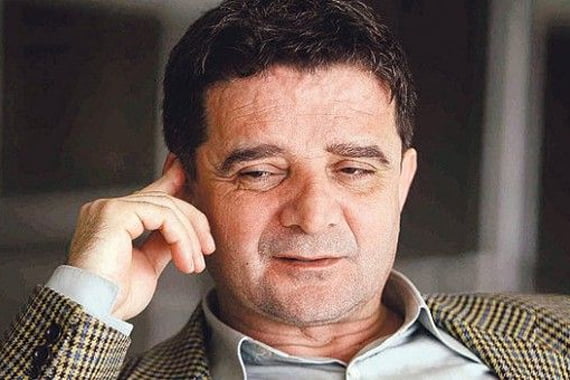Why is Erdoğan hostile to Turkish schools?

Date posted: April 7, 2014
MÜMTAZER TÜRKÖNE
This is Prime Minister Recep Tayyip Erdoğan’s personal war. When President Abdullah Gül recently declared his support for Turkish schools — which are run by Turkish entrepreneurs inspired by the ideas of the well-respected Turkish Islamic scholar Fethullah Gülen — it turned out that Erdoğan was alone in this war.
Indeed, there is no other ruling Justice and Development Party (AK Party) official who speaks out against Turkish schools. Claims hastily made by Foreign Minister Ahmet Davutoğlu are not enough to turn Erdoğan’s personal war into a general one.
The Hizmet movement has had considerable successes in the field of education. While its share in the Turkish education sector is not colossal, the quality of its services stands out. Turkey’s new elites attend these schools. Turkish schools have been enjoying significant prestige in many countries around the world, and have come to be perceived as Turkey’s prestige. Erdoğan’s rage against Turkish schools is therefore the result of his personal political calculations.
I personally had the opportunity to visit some Turkish schools and make observations about them in Central Asia, Africa and Europe. I have been to the Turkish schools about which Prime Minister Erdoğan complained about to Azerbaijani President Ilham Aliyev. Moreover, as I visited some schools opened and financed by the Turkish state abroad, I am in a position to make comparisons.
The Hizmet movement is a social movement that redefines “dialogue-centered” religiosity as “peace.” These schools are the basic tools for this vision of “peace” on a global scale. Although these schools have been operating in numerous countries around the world, there is not a single incident showing that they are at odds with the local authorities in respective countries. Rather, the services these schools offer have been welcomed with great satisfaction and elites are very eager to send their children to these schools. The Turkish teachers who work in these schools are not missionaries, but they are extremely successful as they focus on their work with proficiency and religious ecstasy.
Turkish schools represent an expression of the social energy in Turkey. The functions of these schools are not restricted to Turkey’s unilateral export of education. These schools are opening themselves to diverse cultures and with close interaction with these cultures, they contribute to pluralism in Turkey. The teachers return to Turkey after working in these well-organized schools for some time. They bring what they saw and learned in these countries to Turkey. Marriages with foreigners have surged thanks to these interactions. Even the high number of bilingual and bi-cultural children born out of these marriages is a good sign of a multicultural future.
The Hizmet movement’s standards are in place in the Turkish schools. These standards are built upon the Turkish Sufi tradition’s basic premises, such as altruism, love and humility. They reject violence and radical interpretations. The Hizmet movement systematically rejects the idea of using Islam as a political ideology and for political competition. For this reason, Turkish schools constitute the largest and strongest rival of radical Islamic trends around the world. This competition is translated into domestic politics in a more lenient manner in Turkey. The disagreement between the Hizmet movement and the AK Party stems from this discrepancy. The Hizmet movement opposes the politicization of Islam at the hands of the AK Party.
Today, it is becoming clearer that Erdoğan has always seen the Hizmet movement as a rival and has been making plans to destroy this movement by undermining its activities in the education sector. The efforts to shut down prep schools and to offer religious education services via imam-hatip schools — a type of secondary school with a religious curriculum along with the standard curriculum — are the results of these plans. In this context, Erdoğan tries to compete with the movement by opening up Yunus Emre Cultural Centers abroad.
Erdoğan’s desire to maintain his power on a totalitarian plane is the main reason for the war he has waged against Turkish schools.
Source: Todays Zaman , April 7, 2014
Tags: Defamation of Hizmet | Education | Hizmet-inspired schools | Turkey |
























